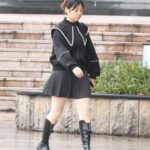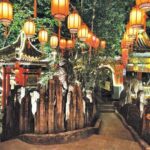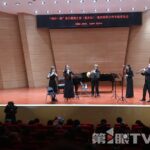As a city of landmark significance on China’s reform and opening-up map, Shenzhen was born and has thrived thanks to reform and opening-up.
Here, President Xi Jinping personally planted a Ficus virens and urged the cadres and masses of the special economic zones to resolutely implement the decisions and deployments of the Party Central Committee, always maintaining the spirit of “daring to venture”, the drive to “innovate”, and the style of “working hard”, striving to write more “spring stories” and create new and greater miracles that amaze the world!
Shenzhen
Shenzhen is a major city in Guangdong Province, China, which transformed from a small fishing village into a global technology hub following its designation as China’s first Special Economic Zone in 1980. This rapid development was a cornerstone of the country’s economic reforms, making it a symbol of modern Chinese innovation and urbanization. Today, it is famously home to numerous tech giants and boasts a skyline of impressive skyscrapers.
reform and opening-up
“Reform and Opening-up” refers to a major economic policy shift initiated by Deng Xiaoping in 1978, which moved China from a planned economy toward a more market-oriented one. This policy opened China to foreign investment and global trade, leading to unprecedented economic growth and modernization that transformed the country into a major world economy.
special economic zones
Special Economic Zones (SEZs) are designated geographical regions within a country that have more liberal economic laws and regulations to attract foreign investment and boost industrial growth. They first emerged in the late 1950s and were popularized by China’s successful implementation starting in the 1980s, which was instrumental in its economic transformation. These zones typically offer benefits such as tax incentives, streamlined customs procedures, and reduced restrictions to encourage export-oriented businesses.
Party Central Committee
The Party Central Committee is the core leadership body of the Chinese Communist Party (CCP), which has governed the People’s Republic of China since its establishment in 1949. It is elected by the Party’s National Congress and is responsible for directing the party’s work when the larger congress is not in session.
Ficus virens
“Ficus virens” is not a cultural site but a species of fig tree, commonly known as the white fig. It is a significant tree in many parts of Asia and Australia, often found in parks and temple grounds. Historically, its large, spreading canopy has made it a traditional focal point for community gatherings and a symbol in various local cultures.
spring stories
“Spring Stories” is a contemporary cultural festival or event, rather than a permanent place, that celebrates the arrival of spring through storytelling and performance. Its history is rooted in modern community arts initiatives, designed to share tales of renewal, folklore, and new beginnings that are culturally associated with the season.




